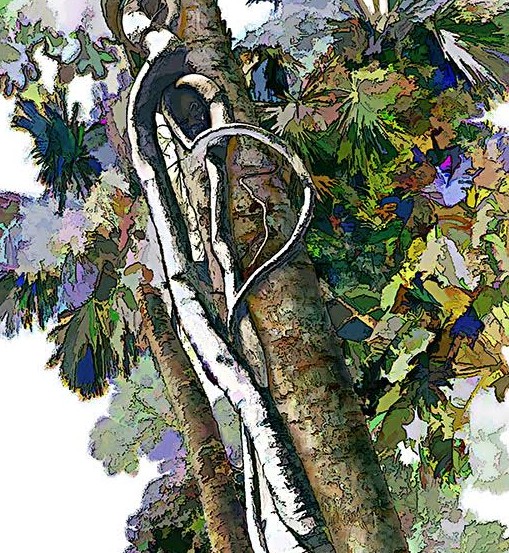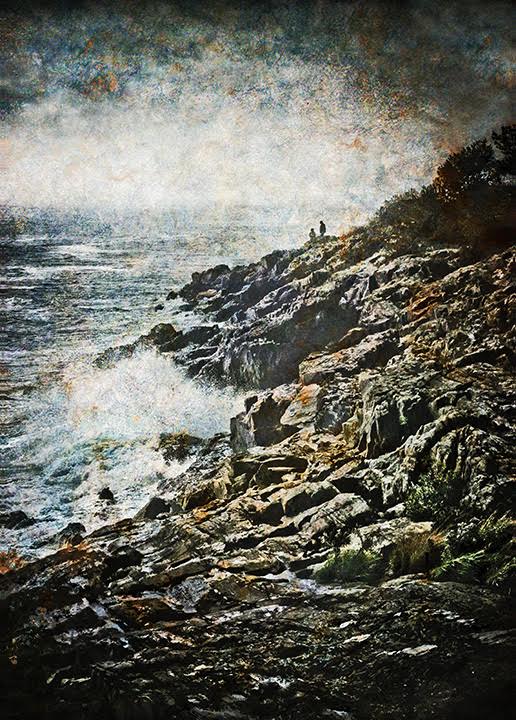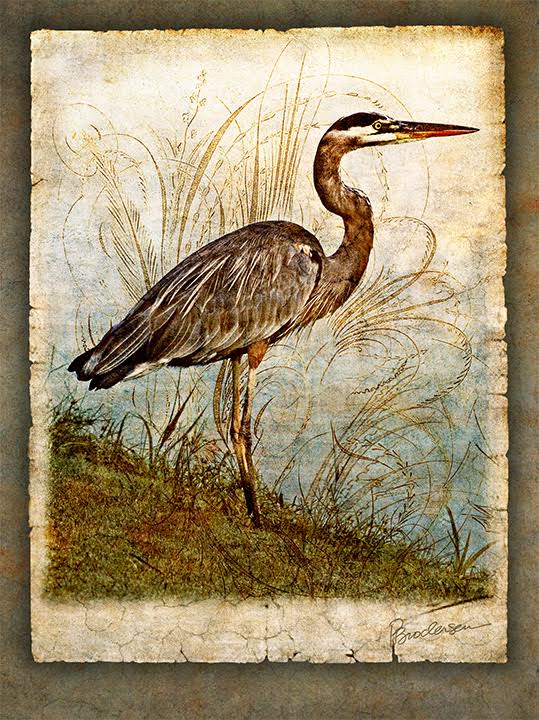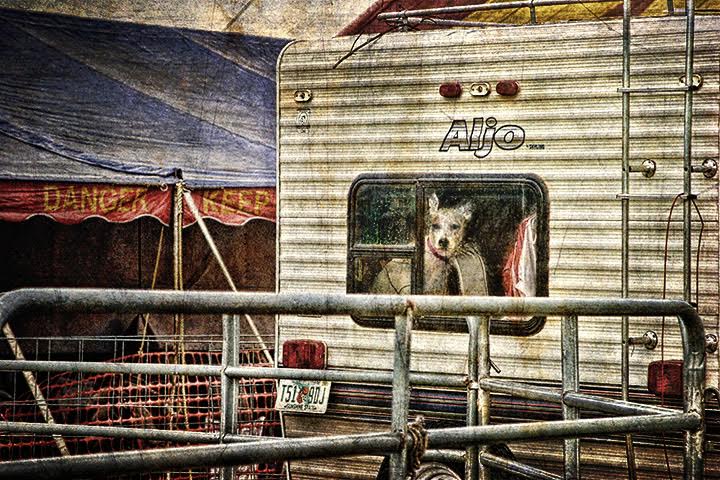
“Sacred Blossoms” Image by Pam Brodersen
”…the remembering self” has two different aspects. “On the one hand, it has the temperament of a librarian, a keeper of memory’s most important archives. It can be fastidious in that role, guarding its original records and trying to keep them pristine.” On the other hand, “memory’s archivist by day has a secret passion by night: to fashion a story about itself… that some of us call the personal myth” — not “a falsehood but a comprehensive view of reality” that seeks “to generate conviction about what it thinks is true.”
~ John Kotre, WHITE GLOVES: How We Create Ourselves Through Memory
We wore white gloves to church on Sunday. When I was eight, my favorite pair had small petaled flowers around the cuffs, with a tiny pearl in the center of each one. A different pair when I was ten had scalloped edges. At twelve, another pair had a pearl button and a loop to close the opening at the wrist. The gloves fit snugly around fingers and thumbs. They stayed white as cotton balls since my sisters and I only wore them for a few hours each week and never touched anything. As we changed into our work clothes, we put the gloves in our top dresser drawers, one on top of the other, next to our underpants. My white church gloves fashioned part of the story of my childhood.
My mother drove us six kids from our farm into town to the Episcopal Church every Sunday, no matter whether snow gusted across the road or sweat wet our armpits. We tumbled out of the car, my younger sister, Nancy, and I heading to the choir room to dress in our black robes, white surplices. In the pews that faced each other close to the altar, she and I giggled and chatted until one of us glanced at the third pew where Mom sat with the other kids. Our mother’s furrowed brow and the shaking her head “No,” told us to cut it out now. Mom used to say, “Taking you all to church takes all the religion out of me.” We wore my mother out no matter where we were.
Six had not been Mom’s choice for the size of our family. But my father wanted to be like Frank Gilbreth who wrote Cheaper by the Dozen, so he talked her into another baby every two years. My mother on occasion admitted she had preferred two children. Then she would add, “But if I had to choose, there’s not one of you I would give up.” This was hard for me to believe. Though she loved infants she could cuddle with, my mother did not really like kids. When we argued with each other, when we embarrassed her by talking too loud, when we didn’t show off our good manners, she’d sigh and turn her head away as if correcting us was not worth the bother.
Life on the farm was relentless for Mom with the marathon canning and freezing beans, peas, tomatoes, applesauce all summer and early fall. Before school, she drilled us for our spelling tests while packing our lunches with lettuce, mayonnaise and peanut butter sandwiches. At night, we sat on the red metal stool and read aloud to her back as she cleaned up in the kitchen. Her energy went into chores, less so into kids.
While Mom covered the bases of being an adequate mother, she showed little inclination to nurture. She never recognized when we girls had outgrown our dresses. On occasion, she’d say, “Come here, I want to feel your nose.” If it was cold, she’d add, “Go get a sweater.” But for the most part, she paid little attention to our clothes matching the weather. She seemed to think we could figure those things out on our own. In particular, I don’t remember her noticing me. Mom never picked up on me feeling sad about something that happened at school or that I was terrified of the dark when she sent me to get more milk from the refrigerator in the cellar.
My father was the worrier. One evening when we still lived in town and I was three, he arrived home from work and asked my mother where the older two kids were. She said she had no idea, she hadn’t noticed they were missing. My father scoured the neighborhood, asking folks if they’d seen his five-year-old girl and his seven-year-old son. He expanded his search, street by street. My older sister remembers holding my brother’s hand, knowing they were lost. My father found them ten blocks away, across a busy street. My sister saw my father get out of the car and raced into his arms.
He once told me his “heart jumped into his throat” each time he checked on my little brother at night and found him buried under the covers at the bottom of his bed. “God, I’d think, what if he’s suffocated?” my father said. When a thunderstorm barreled through and the same brother raced into the hall to brighten his florescent cross under the night light, my mother laughed at how foolish he was to be so fearful. These memories helped construct my story that my father was the caring parent, not my mother.
During winters in southwestern Pennsylvania, the sky shifted from dirty white to thundercloud gray. The sun was merely a rumor. Wind snuck into the window edges, making the house groan. Our jackets, wool caps and mittens never quite barricaded the cold.
We girls were allowed to wear pants under our dresses to school when it froze enough to burn the inside of our noses. One day as I stared at the crystals of frost making dips and drifts in the small rectangular windows running up to the ceiling, Mrs. Scott, my second-grade teacher, announced it was time to line up to go the bathroom. Squeaks of desk lids opening, a girl’s whispering to a friend, rustling of papers filled the room.
As I slid from my seat, my teacher, who did not smile often, but whose eyes never flashed in anger, said, “Carroll, can you come here, please?” I got good report cards and did not misbehave much, so I was curious, not nervous when I walked toward her as my classmates left the room. With her cinnamon hair curled in a tight permanent, Mrs. Scott held out her hands and motioned for me to put my hands out. Both of us stared at my raw, cracked fingers. She leaned over to her desk drawer and opened it. My teacher lifted a bottle of Jergen’s lotion and shook some into her open hand. She greased my fingers one by one, then with both her palms, caressed them, back and forth, back and forth. Mrs. Scott, concentrating on massaging the cream into my red hands, did not notice me looking up at her. She did not know that I was thinking: This is what a good mother does for her child.
When we got off the school bus around four o’clock, two-foot-long icicles clung to the roof of the house. We changed our clothes and headed for the cellar where our snow pants, work jackets and boots were. Before I graduated to milking our Guernseys when I turned twelve, I helped feed the beef cattle who roamed in the rock-hard fields. Either my father or the hired hand drove the pick-up truck, bouncing my sisters, little brother and me up and down on the hay bales in the back. The wind seared across our faces, tearing up our eyes and sending snot down onto our lips. When we arrived where the cows huddled, with feet planted to balance ourselves as the truck kept moving, we pitched hay over the side. Headlight beams funneled dimly across the snow-covered ground. Once our job was done, our behinds bumped against the empty truck bed as we rode back over the fields. We swiped prickly mittens across our faces to scrape off stalks that the wind stuck there. By the time we returned to the barn, we no longer felt our fingers or our toes. Now when I am out in a bracing wind, I remember those dark, late afternoons in the back of the truck.
Inside the barn, it was cold enough for steam to rise where a milk cow pooped on the straw, but it was warmer than in the fields. One evening, I spread hay into troughs without my mittens. Blood scabs dotted the cracks on my knuckles. My father grabbed my sleeve and led me past the stand where the pail lid covered the fresh milk, past the horse stalls to the window at the far side of the barn. He reached up to the ledge, pulled down a lime green can of Bag Balm that he used to soften the cows’ teats. Scooping out a clump of yellow grease, he worked the lanolin into my fingers, one hand, then the other. Pulling his work gloves on, he headed back to the cows. As the oozy grease softened my fingers, I followed my father.
In my house on chilly days now, my cold fingers often tell me I need to put on a sweater. After my morning shower, I cream my body well. I moisturize my face in the evening and add ultra-healing lotion to my hands before I head toward bed. Without conscious thought, I have internalized the actions of those who helped care for my dry skin.
My young granddaughter, since she was a baby, has had skin so dry it feels like fine sand paper. When she was little, her mother slurped mango body butter over her limbs, back and belly. One evening I babysat when she was in second grade. After she had greased her hands, my granddaughter pulled on a pair of knitted mittens. A slice of a memory flashed and took shape: A pair of white gloves, larger than my usual Sunday ones, yellowed and dirty-looking–I had put on my hands as a child before I went to bed. The mustard tinge came from the cream I had slathered on before I slid my fingers into the gloves.
A thrill stirred in my chest as I stared at my granddaughter’s mittens. My mother had figured out a way to deal with my chapped hands. No one else would have given me gloves to encase my hands in lotion overnight.
Yet no matter how hard I tried, I could not remember my mother noticing my chapped fingers. I ploughed through my memories, but I could not determine when my mother gave me the gloves to shield my hands. I tried out scenarios, imagining what might have occurred.
Perhaps one evening at dinner as we all sat round the red Formica table, Mom watched me raise my milk tumbler. My red hands were difficult to ignore. After I brushed my teeth that evening, she held my fingers for a brief moment under the lamp on the bed stand before she said good night. I attempted to invent what she might have said as she inspected my hands, but no words came to mind. The next day I imagined she might have called her friend, Lucille, and together they came up with a plan. My mother then went upstairs to my older sister’s dresser. In the top drawer, she picked out a pair of white gloves, slightly worn, and placed them on the dressing table in her bedroom. That night Mom handed me a lotion bottle and the pair of worn gloves. “Put cream on your hands every night,” she said. “Then wear these when you go to bed.” So simply would she have instructed me on how to help my chapped hands. Maybe I grew tired of wearing the gloves and my fingers once again reddened. Maybe my father was following her lead when he noticed dried blood on my knuckles. But my contrived sequence of events rang false, with a mother I did not recognize.
I worked at imagining me telling Mom about Mrs. Scott lotioning my red fingers. But I would have been embarrassed to let her know that my teacher recognized what she had missed. I tried to envision my mother noticing my rough hands while she washed the dishes and I picked them up from the drainer to wipe dry. Yet my older sister usually was the one who washed while I dried. Shaping memory of a caring mother battled tough resistance. So entrenched was my perception of Mom never noticing of me, I could not see her initiate a plan to help my chapped hands. I dug further to find a palatable version of how I came to wear gloves at night.
The story that made sense to me: That freezing night, after my father rubbed Bag Balm into my fingers, he changed from his dungarees into his pajamas and climbed into bed. My mother, in her nightie, socks and bed jacket, lay beside him. In the darkened room, my father told my mother about my hands. “They’re in god-awful shape,” he said. “The cracks in her knuckles have scabs of blood. You need to figure out something to do about them.” With my father’s instruction, Mom telephoned several friends to see if they had ideas how to salve my chapped hands. One suggestion of applying cream, then putting on gloves each night made sense to her. She found an extra pair of my older sister’s and gave them to me along with the lotion. With three kids younger than I who needed her attention at bed time, I would have been in charge of dealing with my red hands. Without remembering of how I came to wear gloves at night, I fashioned a story that fits what I want to believe. Together my parents helped me.
As a meticulous memory keeper, I remembered the features of each pristine pair of church gloves. I loved that they made me feel dressed up, not like a farm girl. Scenes emerged readily of Mrs. Scott massaging cream into my fingers, my father’s rough hands greasing my cracked ones. I spotlighted my claims of who noticed me.
My remembering self had already been a myth maker, determined to dismiss what did not fit the narrative I crafted. With no memory of a nurturing mother, I stripped her of all signs of her caring for me. My granddaughter pulling mittens on her greased hands triggered recall of a forgotten kindness. Yellowed white gloves added a new dimension to my memory of my mother. One of her chores, it turns out, was figuring out a way to help me.
After a career in social work, Carroll Sandel took her first class at Grub St. Writing Center and felt as though she had leapt off a cliff. That exhilarating, terrifying feeling re-emerges each time she sits at the computer to write again. Her work has appeared in Hippocampus Magazine, Pangyrus, The Drum, Grub Daily and she was a 2014 finalist for the Dorothy Cappon non-fiction prize in New Letters. She has recently completed a memoir, Lying Eyes, which explores her untrustworthy memories and how certainty about our memories can betray us.









